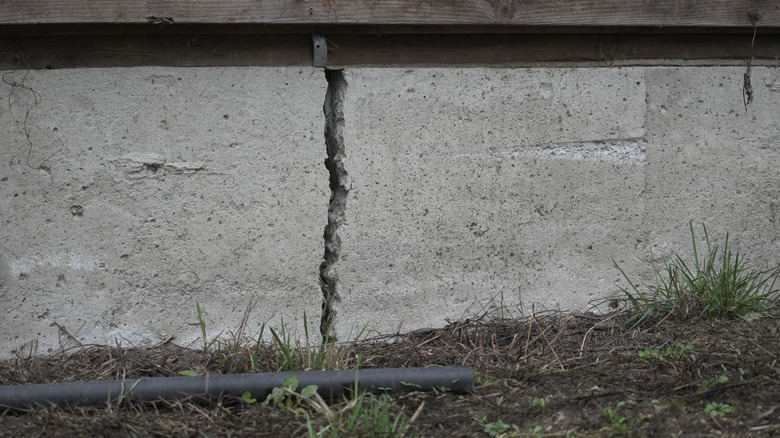If You've Ever Heard Your House Creak At Night, This Could Be Why
Here's a scene that you'll probably find all too eerily familiar: It's the dead of night, and you're the only person awake in the house, but then, you hear the floorboards creak. That subtle sound has birthed too many paranormal conspiracists to count, but don't be so quick to call the Ghostbusters. When things go creak and bump in the night, it instantly puts us on edge, and your natural stress response is factor number one in the paranormal. Heightened awareness can make us think we've seen a ghost, and can trick our ears as well. Instead of listening to our fears, let's listen to science.
If you hear creaks in your house at night, it's probably due to the way that changes in temperature affect its structure. You likely learned in science class that water expands and contracts with temperature, but this is actually true of solid matter as well. Building materials like wood, concrete, and steel expand when they get hot and contract when they get cold. This is otherwise known as thermal expansion and contraction, and it naturally occurs as temperatures fluctuate between day and night. This is why houses tend to be creakier during winter; the exterior shrinks, but the foundation, which is set into the ground and thus not as exposed to the elements, does not. As the frame and foundation shift position against each other, it can sound like ghosts are tiptoeing all over your home.
When a creaky house becomes a real problem
Generally speaking, a creaky house is a natural result of the way temperature affects matter, and that means there's nothing you can really do to stop it. There are some measures you can take to soften creaks, like ensuring that all the doors and windows in your house are properly sealed to keep heat from escaping and placing rugs around the house to help muffle the noise. However, you can generally ignore the issue and you'll probably be just fine. Sometimes, though, your house might make noises for more serious reasons.
In more serious cases, frequent creaking in the house may be a sign of the foundation settling or shifting. Soil erosion around and underneath the house can cause the foundation to gradually sink over time. Every newly-built home will inevitably experience some settling, but if the sinking goes too far, it could lead to structural problems in the foundation. In other cases, the constant thermal expansion and contraction of the home can cause the foundation itself to shift. If you frequently hear creaking (or worse, cracking) around your house, keep an eye out for fractures in the walls, and check that all the doors and windows align with their frames. If there is a crack anywhere, or the doors and windows don't fit cleanly where they once did, you're probably dealing with more than the normal creaks caused by thermal expansion and contraction. At that point, professional repairs are the most advisable move.

